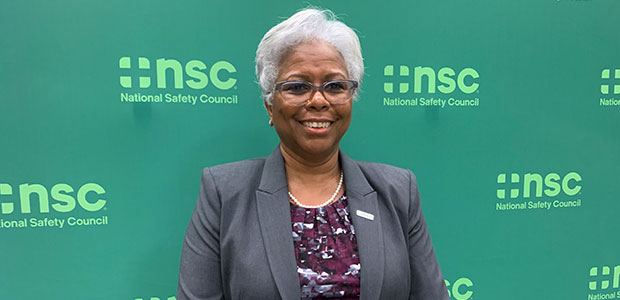
NSC Details its Campaign to Combat Workplace Overdose Deaths
NSC officials shed light on its Respond Ready Workplace program, which aims to cut workplace overdose deaths.
- By David Kopf
- Oct 24, 2023
In response to the mounting number of overdose deaths in the workplace, the National Safety Council took some time at the NSC Safety Congress & Expo today to provide some details on its Respond Ready Workplace program, which aims to cut the rate of workplace overdose fatalities.
American workplaces are just beginning their journey when it comes to understanding the issue and the need to address it, noted Lorraine Martin, president and CEO of the National Safety Council.
“We’re at the very front end of this,” she explained. “… We’re really happy that we’ve grabbed this issue at this very early stage because we have the chance to educate businesses right now. I have been talking to quite a few business leaders around the nation, and this isn’t on their radar yet. Not only do they not quite know what’s going on in the United States and how many folks are losing their lives to this issue, they haven’t yet got in their own head that this is a workplace issue.”
The numbers are eye-opening: according to NSC analysis of Bureau of Labor Statistics data, unintentional overdose deaths in the workplace from non-medical use of drugs or alcohol skyrocketed by 536 percent between 2011 and 2021. Overdose deaths totaled 464 in 2021, representing nearly one in 11 worker deaths.
Of course, this is part of the national opioid overdose epidemic. In 2021, the United States saw a 17.6 percent leap in drug overdose deaths in 2021, with a total of 98,268 people perishing that year, marking an all-time high, according to NSC review of Centers for Disease Control and Prevention data.
The Food and Drug Administration has responded to this epidemic by approving two opioid overdose drugs for over-the-counter use this year. On July 28, the FDA approved RiVive, 3-milligram naloxone hydrochloride nasal spray for OTC use for the emergency treatment of opioid overdose. That followed the FDA’s March 29 approval of Narcan, 4-milligram naloxone hydrochloride nasal spray for the same non-prescription use.
Per the FDA’s recent moves, a cornerstone of NSC’s Respond Ready Workplace program is the effort to get naloxone into workplace first aid kits and train employees on how to use it. Respond Ready Workplace will work with the companies that deliver first aid kits and AEDs, and could also work to help write standards for first aid kits to ensure they include naloxone, Martin noted.
“That will take time, but we’re pretty dogged at the National Safety Council,” she said.
Developing the right stakeholder relationships will also play a key role in expanding awareness of the issue, added Janice Hartgens, MPH, BSBA, RN, COHN-S, the vice president of Respond Ready Workplace. That outreach will likely include human resources professionals, health and safety professionals, employees and management.
“We are looking at our engagement plan and developing it,” she explained. “We’re exploring industries based on our verticals within the National Safety Council and will then talk to those industries and associations that have been impacted to raise awareness.”
Part of that work will be working with companies and organizations to ensure there are resources such as employee assistance programs and support groups that can help prevent drug overdoses as well as help employees deal with any substance abuse problems, added Nicole Piggott, board member for the NSC and chief operating officer with Women in Governance in Quebec, Canada.
“I’ve worked with organizations that I’ve led, creating survivor support groups within the organization where employees can talk to employees about their journeys and support each other,” she said. “It’s been hugely powerful in de-stigmatizing it for the workplace and helping us to play more of a preventive role.”
Similarly, it could be useful for companies to ensure supervisors are trained to recognize if employees are impaired.
“That impairment might not even be from substance abuse,” Hartgens noted. “It could be just something that’s happening at home. You know, the workplace is a microcosm of society. People do not leave themselves outside; they bring everything in. So, employers have to be ready to address everything.”